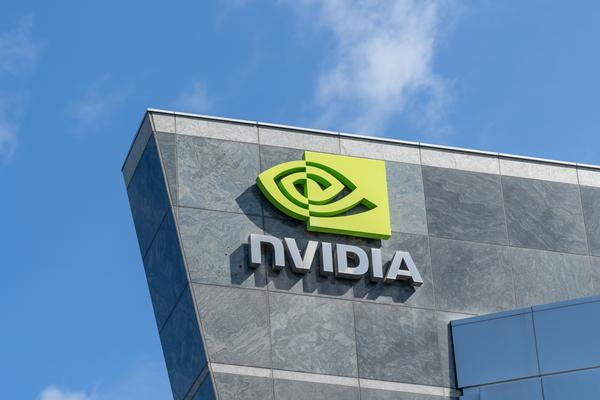Nvidia CEO Jensen Huang has signaled a strong interest in expanding the company’s chip sales to China once U.S. restrictions on advanced semiconductor exports, including the recently imposed H20 ban, are lifted. Speaking with CNBC, Huang emphasized the significant market potential and strategic importance of re-engaging with Chinese customers as global supply chains adjust to evolving regulatory landscapes. This development highlights ongoing tensions and negotiations in the tech sector amid escalating geopolitical challenges surrounding cutting-edge technology transfers.
Nvidia CEO Sees Growth Opportunities in Advanced Chip Sales to China Post H20 Ban
Nvidia’s CEO Jensen Huang has pinpointed significant growth prospects in the Chinese market following the anticipated lifting of the H20 ban, which currently restricts sales of high-performance GPUs to China. Huang emphasized that the company’s cutting-edge chips, especially those designed for AI and data center applications, are well-positioned to meet the rising computational demands of Chinese enterprises. He believes the renewed access will fuel innovation and collaboration in key sectors such as artificial intelligence, cloud computing, and autonomous driving.
Industry experts highlight several areas where Nvidia’s advanced semiconductor technology could make the most impact:
- AI Research: Accelerating machine learning models with powerful GPUs.
- Cloud Services: Enhancing efficiency for Chinese data centers and internet companies.
- Automotive Tech: Enabling AI-driven autonomous vehicles and smart transportation systems.
| Sector | Potential Demand | Key Applications |
|---|---|---|
| AI Research | High | Deep learning, NLP, computer vision |
| Cloud Services | Medium | Data centers, virtualization |
| Automotive Tech | Rising | Autonomous driving, edge AI |
Strategic Implications of Lifting the H20 Ban on US-China Semiconductor Trade
Relaxing the H20 ban on semiconductor trade between the US and China stands to redefine the global technology landscape, ushering in a new phase of competition and collaboration. For Nvidia, one of the industry’s pivotal players, the move unlocks access to a massive market hungry for cutting-edge AI and high-performance computing chips. This could accelerate China’s tech modernization efforts, as advanced GPUs play a critical role in sectors ranging from cloud computing to autonomous vehicles. However, the decision also poses strategic risks, as transfer of technology may inadvertently strengthen China’s military and surveillance capabilities, raising concerns over geopolitical balance.
Key strategic considerations include:
- Market Expansion: Nvidia taps into billions in revenue growth by meeting Chinese demand.
- Innovation Race: Intensifies competition for semiconductor leadership globally.
- Supply Chain Dynamics: Potential reconfiguration of manufacturing and distribution networks.
- National Security: Balancing commercial interests against technology security.
| Factor | Impact on Nvidia | Broader Implications |
|---|---|---|
| Lifted Ban | Access to advanced GPU sales | Accelerated tech adoption in China |
| Regulatory Uncertainty | Potential for future restrictions | Volatile trade environment |
| Geopolitical Tension | Risk of technology leakage | Strained US-China relations |
Recommendations for Nvidia to Navigate Regulatory Challenges and Expand in the Chinese Market
To effectively navigate the complex regulatory landscape in China, Nvidia should prioritize cultivating strategic partnerships with local technology firms and government stakeholders. This approach not only fosters trust but also aligns Nvidia’s advanced chip development with China’s technological ambitions. Leveraging joint ventures or licensing agreements could mitigate potential compliance issues while ensuring smoother market entry once the H20 ban is lifted. Additionally, investing in localized research and development centers will demonstrate Nvidia’s commitment to China’s innovation ecosystem and help tailor products that meet specific regional needs.
Key strategic actions for Nvidia include:
- Building collaborative alliances with Chinese AI startups and semiconductor manufacturers
- Implementing rigorous compliance frameworks adapted to evolving regulatory requirements
- Engaging in proactive dialogue with Chinese regulators to shape mutually beneficial policies
- Expanding training programs and talent exchange initiatives to enhance local expertise
| Challenge | Recommended Strategy | Expected Outcome |
|---|---|---|
| H20 Ban Restrictions | Form joint ventures with local entities | Improved regulatory access & market entry |
| Complex Compliance | Establish in-country compliance teams | Reduced legal risks and smoother approvals |
| Market Competition | Invest in localized R&D and talent | Enhanced product relevance and innovation |
In Summary
As the situation unfolds and regulatory restrictions evolve, Nvidia CEO Jensen Huang’s intent to expand advanced chip sales to China signals a pivotal moment for the global semiconductor industry. Market watchers will be closely monitoring how policy shifts impact technology access and international trade dynamics. The eventual lifting of the H20 ban could mark a significant step in reshaping Nvidia’s strategic priorities and the broader competitive landscape in high-performance computing.




